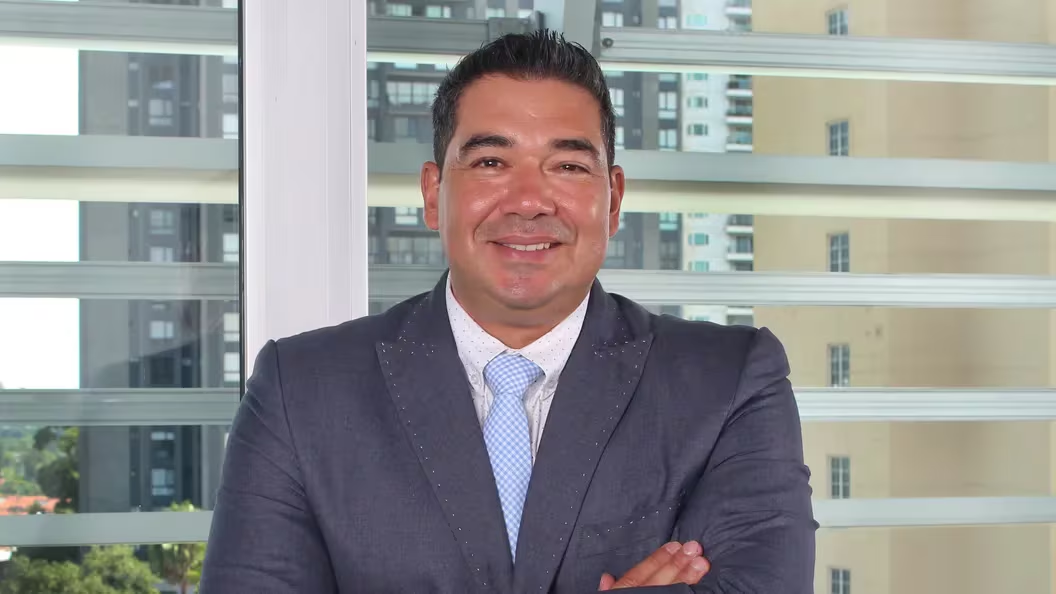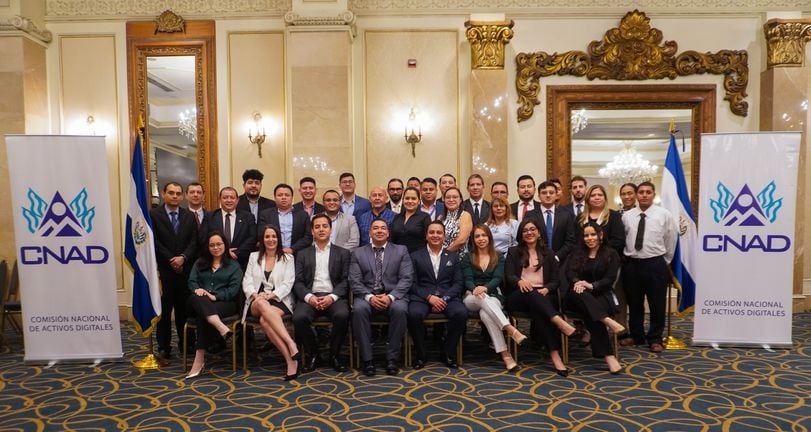The National Digital Asset Commission is the agency responsible for regulating Bit in El Salvador, which is the first country to adopt Bit as legal tender

Juan Carlos Reyes of the National Digital Asset Commission (CNAD) of El Salvador
- CNAD Chairman Juan Carlos Reyes was interviewed exclusively by CoinDesk.
- Reyes said that crypto regulators need to deeply understand the technology before providing a regulatory framework.
- Tokenization efforts are particularly appealing because they democratize access to structured securities.
In regulating Bit, El Salvador is ahead of most other countries. It was the first country to adopt Bit as legal tender in 2021, and has become the home of many Bit companies. Juan Carlos Reyes, the chairman of the National Digital Asset Commission (CNAD) of El Salvador, told CoinDesk in an interview: "In general, most people won't understand what we're doing in El Salvador, they just see a glimpse." The commission was established in February 2023 to regulate the Bit industry in this Latin American country with a population of 6.3 million.
"Even foreign companies that are regulated but don't have a full office locally, they don't understand how advanced we are and how fast this industry is moving," Reyes said. President Nayib Bukele's initiatives have forced the country's various agencies to grapple with the impact of this technology and the use of digital currencies. Therefore, El Salvador avoided handing over Bit regulatory authority to traditional financial regulators (such as the Financial System Supervision Authority (SFS)), and instead created CNAD from scratch. Its goal is to create a tailor-made regulatory framework for Bit, rather than trying to apply existing rules to digital assets.
"There's an old saying in English: 'If it walks like a duck, quacks like a duck, and looks like a duck, it's probably a duck,'" Reyes said.
"But in this case, it's not a duck. Digital assets are completely different from traditional financial instruments." That's why after Reyes, a heavyweight in computer science, became the head of the agency in September 2023, CNAD has taken a technology-driven approach to regulating Bit.
According to Bit companies licensed as Digital Asset Service Providers (DASPs) in El Salvador, the results have been stunning. Nick Cowan, CEO of tokenization solutions company VLRM Group, told CoinDesk: "CNAD's depth of knowledge and attention to detail, not only in terms of regulations but also in terms of technology, has really caught us off guard." "I'm not trying to praise El Salvador, but the fact that they were able to get to the core of the issues and review our applications so quickly was really shocking to us."
Victor Solomon, a partner at El Salvador tokenization advisory firm Tokenization Expert, agreed. "We didn't have to spend time explaining the technical foundations of our operations - Reyes already understood the complexities of tokenization and the compliance measures we've implemented," Solomon told CoinDesk. "He understands the real challenges businesses face, from fundraising to regulatory compliance, making him not just a regulator, but an advocate for businesses aiming to have a positive impact on the Salvadoran economy."
Technology Expert
Reyes was born in El Salvador and moved to Canada as a child to escape the gang violence that was ravaging the country at the time. He describes himself as a "highly accomplished individual" with multiple bachelor's degrees - in computer science, mathematics, and physics - as well as a master's in management from Harvard University and a Ph.D. in philosophy from the Peoples' Friendship University of Russia. Not to mention the doctoral degree in international economics he is currently pursuing. His professional background is also diverse. His experience includes leading a consulting firm for 15 years, developing business opportunities for the Misanapa Bikri indigenous people, and running a bar on the second floor of a beachfront villa. He has been a Bit believer since 2013, and in 2021 he decided to move back to El Salvador to be involved in the process of Bit nationalization.
CNAD has 35 employees, is completely independent, and is modeled after Reyes' image: everyone is an expert on Bit (and its underlying technology). In fact, 20 employees are currently pursuing a crypto graduate program at CEMA University in Argentina to enhance their expertise. "In Bit asset regulation, we have the most knowledgeable and comprehensive team in the world," Reyes said. "If someone doesn't know how to do a Bit transaction, including my driver, they probably can't work here."

The National Digital Asset Commission team. (Photo: CNAD)
This elite team has undoubtedly left a strong impression on companies seeking to obtain operating licenses in El Salvador. Reyes "is a technology expert," Cowan told CoinDesk, whose company has worked with dozens of other regulators globally. "He absolutely understands technology. In other jurisdictions, regulators understand regulations and investor protection, which is of course crucial, but they may not necessarily understand technology, which can sometimes make it difficult to reach the required level."
"It's a very detailed and complex process. I mean, we submitted an application that was 700 pages long," Cowan said. "But the decision-making process is much faster than in other countries... I would say it's very thorough, just as thorough as any other regulatory process we've had to go through." For Reyes, the agency's crypto literacy means it can adhere to one of the most valuable philosophical principles in the field - trust but verify - and check the blockchain every time it interacts with a new company seeking a license. The team does not rely on compliance officers' documents, which has already led to companies being caught providing false information to the regulator.
El Salvador's Advantages
Reyes likes to use an analogy to explain why Bit needs its own regulatory body. If you bought an electric car and it broke down, and you took it to your mechanic of 20 years, when he opened the hood, he wouldn't find an engine - just a battery. He wouldn't know how to handle it. In Reyes' view, Bit and traditional financial assets are like that. On the surface, they look similar. But delve deeper, and they are completely different. This is one of the reasons why various jurisdictions around the world have been slow to implement digital asset regulatory frameworks.
However, El Salvador is a small country. Its GDP is $35 billion, ranking 17th in Latin America and 103rd in the world. It has no currency of its own, no strong financial institutions, and even no existing developer ecosystem. But Reyes says that in regulating Bit, all of this has become a blessing, because El Salvador is "starting from a blank slate." Going back to the electric car analogy, it's like El Salvador being able to immediately specialize in repairing batteries and motors, without having to retrofit its existing infrastructure (designed for engines and pistons) to service Teslas. "In other countries, many new technologies are created by well-meaning people trying to drive the Bit ecosystem forward, but they don't always consider how these technologies can be abused and used for money laundering," Reyes said. "Regulators find it difficult to know how lax the regulatory touch should be."
"We're able to make CNAD the sole entry point for all digital assets in the country," Reyes said.
"Any person who has not obtained permission from the Commission is illegal." Furthermore, compared to some Latin American countries, financial institutions in Western countries will suffer more losses after the status quo changes. "They have lobbyists. They have been fighting. They have implemented Operation Chokepoint 2.0. They are doing their utmost to ensure that this industry does not thrive," Reyes said, whose Canadian bank account was frozen due to cryptocurrency activity.
If countries like El Salvador can act quickly and seize the opportunities brought by cryptocurrencies, everything will be fine.
How to Regulate Cryptocurrencies
But what kind of regulatory environment does El Salvador want to cultivate? Reyes said that in terms of financial instruments, Bit "has more than enough," but apart from that, CNAD takes a neutral stance on technology. Most of the companies regulated by the agency use Eth. The size of the regulated companies varies: Reyes said there are global giants like Tether and Bitfinex Securities, as well as Salvadoran companies "starting at $2,000." Consumer safety and financial security are of paramount importance. This means, for example, requiring exchanges to use multi-signature wallets to ensure there is no repeat of FTX, or requiring companies' private blockchains to follow certain security standards. Identifying the identity of each customer is also mandatory.
"You have to remember that for years, criminal gangs have been intimidating our country," Reyes said. "Therefore, we attach great importance to financial transparency, anti-money laundering and counter-terrorist financing, which are firmly embedded in the regulations."
In his view, if a cryptocurrency company is regulated in El Salvador, it can be licensed anywhere in the world.
Reyes is particularly passionate about one area: real-world assets. In his view, the efforts of companies like VLRM and Tokenization Expert will expand the investment opportunities for retail investors. Reyes said: "Before Robinhood appeared, most young Americans could never buy stocks of Tesla or Nvidia. Robinhood made these stocks, which were previously only open to the super-elite, accessible to the masses. This is the role of tokenization." It is expected that in the coming years, Salvadorans will have the opportunity to access regulated products that are not available in other jurisdictions.
"For the first time in modern history, a developing country is leading the financial revolution, rather than being left behind and only able to pick up the scraps," Reyes said. "We are trying to encourage other countries to look at El Salvador and learn how to apply our model to their countries."







